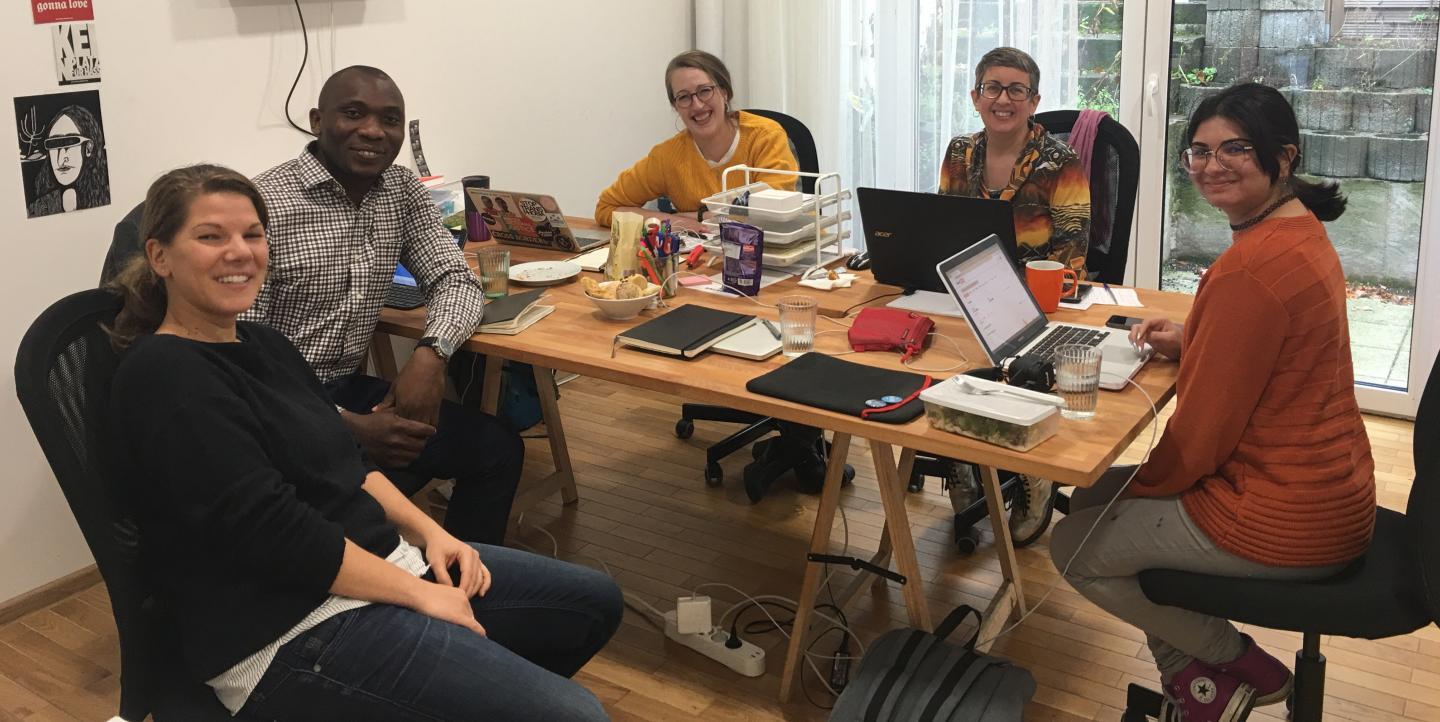In 2018, I joined Hostwriter, a Berlin-based international network that helps journalists collaborate across borders. After meeting colleagues from Kenya and Senegal through the platform, we won the 2018 Hostwriter Pitch Prize that helped us to do a cross-border story on Female Genital Mutilation (FGM). In 2019, our story on FGM won the Hostwriter Story Prize.
For other journalists interested in cross-border collaborations, but unsure how to begin, below are some tips for getting started.
Find like-minded colleagues
To begin any cross-border collaborative project, you need to first find like-minded colleagues in the country you’re interested in doing the story.
To do this, I turned to Hostwriter, which has a large database of journalists around the world. I found two journalists, Annie Njanja and Mamadou Lamine Ba, from Kenya and Senegal respectively, interested in collaborating. Journalists interested in a story or collaboration can use the network to find colleagues covering different beats by simply doing a country or profile search.
Decide on a topic
After I had found two great colleagues to work with, we had to decide what to write about. We wanted to do a story on an African issue that affects the lives of citizens, and we realized that Nigeria, Kenya and Senegal are countries where FGM continues to be an issue despite global efforts to end it.
Nigeria banned FGM in 2015, and Kenya in 2011, but unfortunately it keeps happening, especially in rural areas. Even after more than 5,000 communities publicly denounced FGM in Senegal in 2008, the practice continues.
With all this in mind, we agreed the story was worth telling, and we got to work. The result was a three-month collaboration.
Agree on the best way to communicate
While exchanging ideas, we had to decide the best methods to keep the conversation about the story going — despite the distance. We decided to communicate via three channels: Skype, WhatsApp and email.
WhatsApp worked best for us as we often had for group discussions where we shared our individual progress, what was working and where we needed help from our funders.
We had amazing conversations and shared ideas about how to go about our story. This was how we decided which medium to publish, with special consideration of the visibility and reach.
Turn to useful resources
Although many of the resources you turn to will depend on the nature of the story,, you’ll need resources to guide your collaboration. IJNet has toolkits and tips for collaborative journalism, as does Hostwriter. Similarly, the Global Investigative Journalism Network is a great resource, with many tips for cross-border collaborations.
Search for grants
Without funding or grant opportunities, it’s practically impossible to embark on a cross-border project. Our FGM collaboration was made possible through funding. The good news is that many media organizations are providing funds to journalists working together across borders. Below are a few examples:
- Clean Energy Wire regularly offers funding to tell cross-border stories related to the energy transition around the world.
- European Journalism Centre has a number of grant programs for reporting on topics such as migration, global health, development and more.
- European cross-border grants support teams of European journalists conducting cross-border investigations on a variety of topics.
- Money Trail Grants support cross-border investigations into illicit financial flows, tax abuse and corruption in Africa, Asia and Europe.
- Reporters in the Field is a program from n-ost, based in Germany, that offers reporting grants for cross-border projects.
- Hostwriter offers the Story Prize and Pitch Prize for published cross-border stories or collaborative proposals.
Main image shows Egwu with the Hostwriter team, Bernadette Geyer, Tina Lee, Tabea Grzeszyk and Zahra Salah Uddin. Image courtesy of Patrick Egwu.


